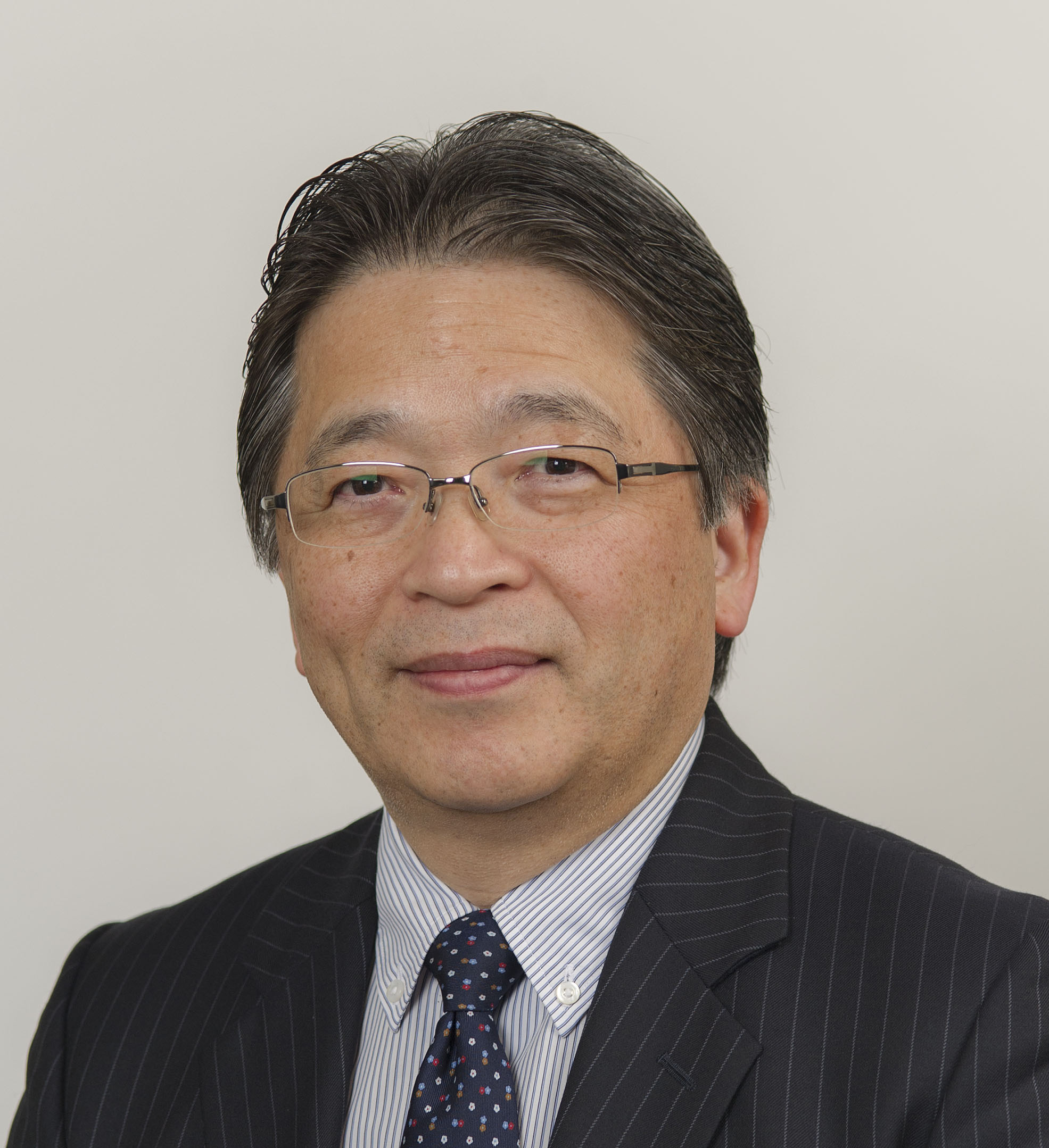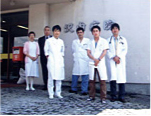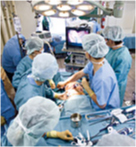School of Medicine
Let us hear your limitless dreams and what medicine of the future can achieve; let us seek value in great learning and nurturing.
 At the School of Medicine, we aim to nurture doctors who can make an impact by approaching issues from a wide perspective and meet the needs of the time and society. The curriculum places special emphasis on the purpose and the meaning of becoming a doctor from the time of matriculation; all of the faculty members exert themselves in medical education under the belief that “if you are not a true and good human being, you cannot provide holistic medical care.”
At the School of Medicine, we aim to nurture doctors who can make an impact by approaching issues from a wide perspective and meet the needs of the time and society. The curriculum places special emphasis on the purpose and the meaning of becoming a doctor from the time of matriculation; all of the faculty members exert themselves in medical education under the belief that “if you are not a true and good human being, you cannot provide holistic medical care.”
We also emphasize the importance of communication between the faculty and the students, employing a class-level faculty advisor system, a small-group faculty advisor system for the first-year students, and a tutor system for the upperclassmen, and provide academic guidance and advice on school life.
Makoto SASAKI, Dean, School of Medicine
Professor of Ultrahigh Field MRI
Advice and Perspective Towards Inquiry


- The goal of Early Clinical Exposure is to gain a first-hand clinical experience and a wide perspective from an early stage in one’s medical education. This includes nursing and institutional care practicum and emergency resuscitation procedures in the first year, and riding in an ambulance and experiencing on-call duties at the Emergency Center in the third year. There are meaningful programs of various themes that pertain to the practice of community-based medicine.


- The fifth-year students will go to actual medical facilities and gain the necessary knowledge, skills, and attitude as doctors. In the Advanced Clinical Practicum in the first part of the sixth year, students become part of the medical team as “student doctors” and become involved in patients’ medical consultations.


- This program is designed to motivate and foster doctors who will contribute to their community. The first-year students will learn about the relationship between doctors and patients and the overall picture of medical care, through acute-period care and chronic-period care. The third-year students will gain experience at actual medical facilities in the community, and gain a first-hand understanding of the significance of the role of doctors. The sixth-year students will perform clinical practicum outside the University Hospital and recognize once more what they have learned in the third year; they will participate in actual medical consultations and learn about primary care.
First Year
- Nursing and Institutional Care Practicum
- Students will visit and gain experience at nursing and institutional care facilities, each for 5 days. By interacting with the elderly and those with disabilities, they will come to see what it means to be a doctor who provides patient-oriented medical care.
- Observing the Actualities of Community Medicine
- Students will visit the community and find existing issues through hearings. In the workshops before and after such hearings, issues will be extracted and reported to deepen the understanding of the actualities.
Third Year
Third Year
- Community Medicine Internship
- Students will spend 5 days at medical facilities in and outside Iwate; they will then discuss problems and possible improvements. A sense of mission as medical professionals will be engraved in students’ minds.
- Emergency Care On-Call Internship;Ambulance Crew Experience
- Students will experience on-call duties at Iwate Prefectural Advanced Critical Care and Emergency Center. They will also experience riding an ambulance under the guidance of the Fire Department Rescue Squad.
Fifth Year
- Operation Practicum Using Miniature Pigs; Gaining Endoscopy Skills
- Students will go through suture training and laparoscopy training; they will also gain endoscopy skills.

Sixth Year
- Community Medicine Clinical Practicum
- Students will participate in medical consultations as student doctors for 2 weeks at medical facilities in Iwate, with emphasis on comprehensiveness and primary care.
6-Year Integrated System at the School of Medicine
Gaining the essence of modern medical science to perform holistic medical care
A curriculum with a systematic and practical approach that
integrates liberal arts and professional education
Curriculum
take liberal arts courses as well as introduction to medicine, to gain a deep understanding of human beings, an accurate knowledge of nature, and an appropriate social awareness and a sound sense of judgment. From the second year, they will concentrate on professional education. Throughout the six years, they will learn about basic medicine, social medicine, and clinical medicine. Clinical practicum is provided in the fifth and sixth years.
*Basic medicine: anatomy, physiology, biochemistry, bacteriology, pathology, pharmacology
*Social medicine: hygiene, public health, forensic medicine
Curriculum in the School of Medicine
